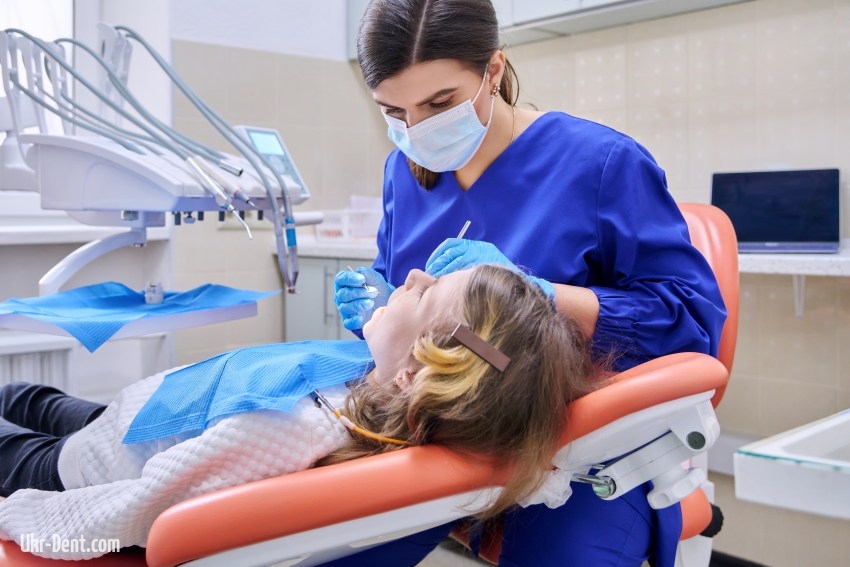Introduction to the Problem of Allergy to Anesthesia
Anesthesia is an integral part of modern dentistry, allowing complex procedures to be performed without pain and stress for the patient. However, some people may have an allergic reaction to the drugs used for anesthesia. This is a rare but potentially dangerous phenomenon that requires a careful approach. To avoid unpleasant situations, it is important to understand what an allergy to anesthesia is, what its symptoms are, and how to minimize the risks.
What Causes an Allergy to Anesthesia?
An allergy to anesthesia is most often associated with the body’s reaction to certain components included in the anesthetics. Local anesthetics are divided into two main groups: ester and amide. Ester anesthetics, such as procaine, are more likely to cause allergic reactions, since their molecules are more prone to breakdown with the release of allergens. Amide anesthetics, such as lidocaine and articaine, are less likely to cause allergies.
In addition to the main active ingredient, allergies can be caused by preservatives, stabilizers, or vasoconstrictors added to drugs to improve their effect. For example, substances that prolong the effect of anesthesia, such as adrenaline, can cause adverse reactions that are often mistaken for allergic reactions.
Symptoms of an allergy to anesthesia
Symptoms of an allergic reaction to anesthesia can range from mild to severe. In mild cases, this includes reddening of the skin, itching, or rashes. In more severe situations, swelling of the face, lips, or tongue may occur, which can make breathing difficult. The most dangerous manifestation is anaphylaxis – a rapid allergic reaction that is accompanied by a decrease in blood pressure, increased heart rate, and loss of consciousness.
Sometimes, allergy symptoms are confused with other reactions to anesthesia, such as drug toxicity or a psychological reaction to fear of a dental procedure. This is why it is important to differentiate between a true allergy and other side effects.
Diagnosing anesthesia allergy
If a patient has previously experienced suspicious symptoms after using anesthesia, a diagnosis should be made before re-use. This includes a consultation with an allergist, who may order skin tests or blood tests for specific antibodies.
Skin tests involve applying a small amount of anesthetic to the skin or subcutaneously to observe the body’s reaction. Blood tests can determine the presence of immunoglobulin E, which is specific to a certain component of the anesthetic.
Preventing allergic reactions
To minimize the risk of anesthesia allergy, patients should provide the dentist with detailed information about their health and allergy history. If a person has previously had reactions to anesthesia or other medications, it is important to discuss this with the doctor in advance.
The dentist can choose an alternative anesthetic that is less likely to cause a reaction. For example, if you have an allergy to ether anesthetics, you can use amide anesthetics. It is also possible to perform a test dose of the anesthetic before the procedure to make sure there is no reaction.
Some patients prefer to discuss the use of sedation or general anesthesia in advance if they are concerned about local anesthesia. However, these methods also require careful preparation and consultation with an anesthesiologist.
The Role of a Dentist in Preventing Complications
An experienced dentist always takes into account the possible risks of anesthesia allergy and takes an individual approach to each patient. Before starting treatment, the doctor must collect an anamnesis, specifying the presence of allergies, chronic diseases and medications taken.
If the patient has a confirmed allergy to certain drugs, the dentist can choose an alternative method of pain relief or consult an allergist. In addition, modern dental clinics should have emergency first aid kits in case of an allergic reaction, including adrenaline and antihistamines.
Advice for patients before visiting the dentist
Before visiting the dentist, patients with an increased risk of anesthesia allergy should take several important precautions. First of all, it is important to provide your dentist with a complete history of your health, including a list of medications you are taking and any allergies you may have.
If you have previously experienced suspicious symptoms after anesthesia, this should definitely be mentioned. It is also worth discussing the possibility of allergy testing, especially if the procedure is complex or lengthy.
Patients with chronic conditions such as asthma or diabetes should be especially careful, as these conditions can increase the risk of complications when using anesthesia. Preparation includes discussing all possible options with your dentist and following all of his or her recommendations.
Allergy or fear: the psychological aspect
Sometimes symptoms that are mistaken for allergies can be caused by stress or fear of dental treatment. Panic attacks, increased heart rate, and even difficulty breathing can be a result of anxiety rather than a reaction to the drug.
In such cases, your dentist may suggest using sedation methods such as nitrous oxide or mild sedatives to help the patient relax. It is important to differentiate psychological reactions from true allergic reactions in order to avoid unnecessary restrictions in the use of anesthetics.
What to do in case of an allergic reaction
If an allergic reaction does occur, it is important to immediately inform the dentist and stop the procedure. The doctor should take measures to stabilize the patient’s condition, including the use of antihistamines, adrenaline or other first aid measures.
After such an incident, the patient should contact an allergist for further examination and clarification of the list of drugs that should be avoided. This will help prevent the situation from recurring in the future.
What is important to remember
An allergy to anesthesia is a rare but serious phenomenon that requires an informed approach from the patient and doctor. Proper preparation, diagnosis and selection of the appropriate anesthetic help minimize risks and ensure comfortable treatment. If you have doubts or concerns, do not hesitate to discuss them with your dentist. Taking care of your health is the first step to successful and safe treatment.


Leave a Reply